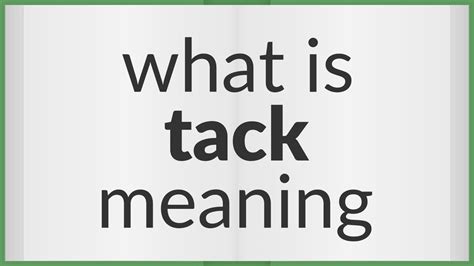The concept of meaning is a complex and multifaceted one, and it’s fascinating to explore how it can become “tacked on” to various aspects of our lives. To delve into this idea, let’s first consider what we mean by “meaning” itself. At its core, meaning refers to the significance, purpose, or importance that we assign to things, events, or experiences. It’s the way in which we make sense of the world and our place within it.
One way to approach this topic is to examine how meaning can become attached to objects, rituals, or practices. For instance, consider a wedding ring. On its own, a ring is simply a circular piece of metal. However, when it’s given as a symbol of marriage, it takes on a profound meaning that represents commitment, love, and unity. The ring itself hasn’t changed, but our perception of it has. This is an example of how meaning can become “tacked on” to an object, transforming its significance and the emotions it evokes.
Another perspective on this concept can be found in the realm of language and communication. Words, phrases, and symbols can all be imbued with meaning that goes beyond their literal definitions. Consider the phrase “break a leg.” On the surface, it seems like a violent and nonsensical expression. However, in the context of theater or performance, it’s a way of wishing someone good luck. This phrase has taken on a meaning that’s opposite of its literal interpretation, illustrating how language can be used to convey complex ideas and emotions.
The concept of meaning can also be explored through the lens of cultural and historical context. For example, consider the swastika symbol. Originally, it was an ancient Indian symbol representing good fortune and prosperity. However, during the 20th century, it was co-opted by the Nazi party and became synonymous with hate, intolerance, and oppression. This transformation demonstrates how meaning can be “tacked on” to a symbol, altering its significance and the emotions it evokes in different cultural and historical contexts.
The concept of meaning is not fixed or absolute; it's constantly evolving and changing as our understanding of the world and ourselves shifts. This dynamic nature of meaning is what makes it so fascinating and multifaceted.
To further explore this idea, let’s examine how meaning can be created and assigned through personal experiences and memories. Consider a favorite childhood vacation spot. The location itself may not be inherently special, but the memories and emotions associated with it make it meaningful. This is an example of how meaning can become “tacked on” to a place or experience, transforming its significance and the emotions it evokes.
Meaning is not something that's inherent or fixed; it's something that we create and assign through our experiences, perceptions, and understanding of the world.
In conclusion, the concept of meaning is complex and multifaceted, and it can become “tacked on” to various aspects of our lives in different ways. By exploring how meaning is created, assigned, and transformed, we can gain a deeper understanding of the ways in which we make sense of the world and our place within it.
How is meaning created and assigned to objects or experiences?
+Meaning is created and assigned through our experiences, perceptions, and understanding of the world. It can be influenced by cultural and historical context, personal memories and emotions, and the significance we assign to things.
Can meaning change over time?
+Yes, meaning can change over time as our understanding of the world and ourselves shifts. This can be seen in the way that symbols, language, and cultural practices evolve and take on new significances.
How does cultural and historical context influence meaning?
+Cultural and historical context can significantly influence the meaning we assign to things. For example, a symbol that's revered in one culture may be reviled in another, or a practice that's common in one historical period may be forbidden in another.
By examining the complex and multifaceted nature of meaning, we can gain a deeper understanding of how it shapes our perceptions, experiences, and understanding of the world. Whether it’s through the objects we assign meaning to, the language we use, or the cultural and historical context in which we live, meaning is a dynamic and evolving concept that continues to shape and transform our lives.



